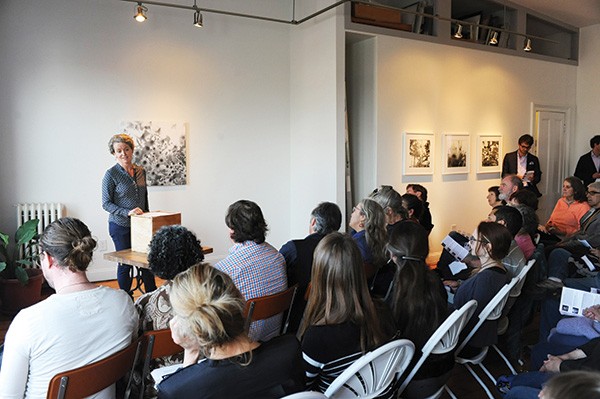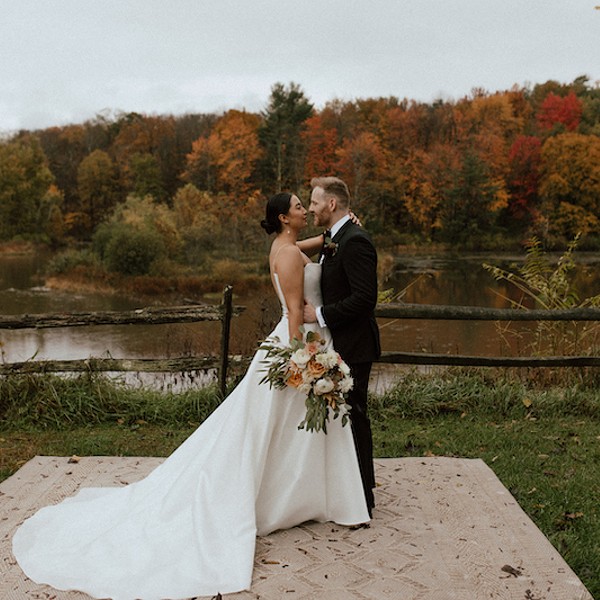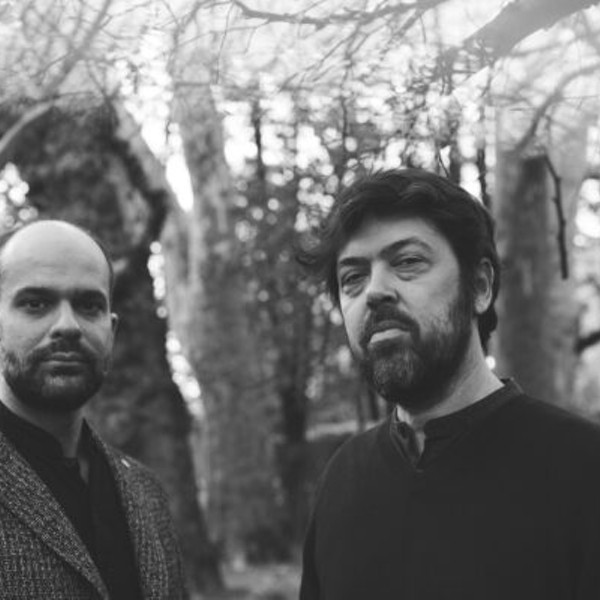Turning onto County Route 22 on the way to Omi International Arts Center, you pass the Ghent Reformed Church, a boxy masterpiece of 19th-century symmetry in plain white clapboard. The road itself has a meandering but smooth quality; the trees are just showing the promise of new leaves. Even the light is soft: not too bright, not too overcast. It's as if everything around here is designed for calm, productive work.
I've driven into these fertile hills to visit Writers Omi at Ledig House, an international writers' and translators' residency. Held each spring and fall, it's the literary component of Omi International, which hosts art, dance, and music residencies in other months. Though it sounds like an acronym with a vaguely Japanese-ish, even meditative feel, Omi (pronounced "oh my") is actually the name of this Columbia County hamlet.
Founded in 1991 by Frances Greenburger, the creative, nonprofit haven spans 300 acres of a former dairy farm, 120 acres of which are planted with a changing array of mammoth sculptures. There's a modernist visitors center with a weekend café, a huge red barn, a host of smaller buildings, and the tidy complex of farmhouse and two dormitory barns that house the visiting talent.
Greenburger, son of renowned literary agent Sanford Greenburger, worked in the agency before moving into real estate; the value of art and literature is, literally, in his DNA. He named the writers program for a family friend, influential German publisher Heinrich Maria Ledig-Rowohlt, who brought writers like Thomas Wolfe, William Faulkner, Toni Morrison, Vladimir Nabokov, and Yukio Mishima to German readers. Omi carries on this international mandate. Of the 40 writers and translators who come here each year, two thirds are from other countries: Iceland to Iraq, Turkey to Australia; alumni include Aleksander Hemon, Gary Shteyngart, and Kiran Desai.
Writers Omi Director DW Gibson notes that published writers from anywhere (including the Hudson Valley: poet/translator Anna Moschovakis was a recent guest) are welcome to apply through Omi's open application process. Omi gets between 200 and 300 applications a year, reviewed by a panel of 15, including editors, agents, critics, and writers. Among those accepted this spring were exiled Iraqi film director/writer Hassan Blasim (twice the winner of the English PEN Writers in Translation Award, whose latest book, The Corpse Exhibition: And Other Stories of Iraq, comes out this year; and South African-born novelist Anne Landsman, whose 2009 novel Rowing Lessons won South Africa's coveted Sunday Times Fiction Prize.
Other writers and translators come via a network of publishers and cultural organizations, such as Hamad Bin Kalifa University's Institute for Translation and Interpreting in Qatar, which helped bring the Sudanese translator Hadia Hojo to Ghent this month. "We reach out all over the world for help finding good candidates," Gibson says.
This spring's literary residents include Blasim, Landsman, German translator Bettina Abarbanell, Israeli-American writer/translator Yardenne Greenspan, Norwegian journalist Hans-Olaf Thyvold, and American writer Su-Yee Lin. Any given session might include poets, playwrights, screenwriters, novelists, journalists, children's authors, and travel writers. Room and board are provided. The menu is locally sourced, the kitchen fully stocked. Writers prepare their own food by day (there is an innate understanding of the peculiarities of writer's individual clocks here); dinners are provided, often cooked by a Portuguese chef. If anyone feels like venturing off campus, two cars are available.
The day I visited, Landsman, trim and bright, popped into the kitchen of Ledig house carrying a basketful of laundry, her hair freshly washed. She had the air of someone on a working vacation: slightly preoccupied but welcoming. We sat in the airy dining room, where a grand sideboard displayed books penned or translated by current guests, a lovely, discreet way to share one's work without fanfare. Akemi Hiatt, Omi's communications manager (also an artist) brought in big, crumbly croissants, iced coffee (for me), and decaf green tea (for Landsman).
Landsman first encountered Omi as a dinner guest. "The woman who translated my second novel into German was doing a residency here, and invited me to dinner," she says. "I just fell in love with the place." She's now deep into the third draft of a young-adult novel set in an Elizabethan-like world, which she describes as "either a historical fantasy or a fantastical history."
"It's very complicated, and I've got it all laid out in my room: index cards are on my bed, and the chapters themselves on the steps. It's a relief to be able to leave everything there, undisturbed. And I feel very strongly about my index cards," notes the former screenwriter.

















